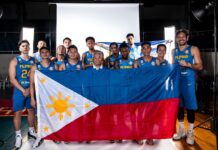The recent Rio Olympics should show that a Filipino—or rather, a Filipina—can compete with the best athletes of the world. It also shows that Philippine sports policy-planning and programming remains problematic.
How else could one explain that it took two decades for the Philippines to land again in the Olympic medal tally?
It is not as if we have not seen a Filipino win in the international stage, but we have not seen a Filipino victory in the Olympics for exactly two decades until Hidilyn Diaz brought home the silver in weightlifting.
Ironically, Diaz was already planning to quit her Olympic dreams and pursue a career in the United States, partly from the pain of losing in her first two Olympic stints and mostly, for the lack of support from Philippine sports officialdom.
The lack of support for Filipino athletes has also been evident in chess, which the Philippines used to dominate.
Millennials will surely remember Eugene Torre as a staple in discussions during their elementary years and probably, that was the last time we heard of the Filipino chess grandmaster who had just won a bronze in the World Chess Olympiad recently at 64 years old.
Unfortunately, a prodigy like Wesley So, who was hailed as the new hope for Philippine chess, now dons the tricolors of the United States.
So moved to the United States in 2014 and he’s now No. 7 in the world rankings. His changing of federation can be traced to his dispute with local sports officials over his winnings and the dwindling allowance of Filipino chess players.
Hidilyn and some Filipino grandmasters, including Torre, who received a P40,000 monthly allowance before, got only P9,600 monthly support last year.
It is deplorable that such as weightlifting and chess don’t get as much as state and private support because compared to basketball and volleyball, they provide relative less entertainment. As a result, they draw less commercial support.
When Gilas Pilipinas announced its Final 12 for the FIBA Olympic Qualifying Tournament, it was a TV event.
The same goes with Filipino volleybelles selected to compete in the FIVB Women’s Club World Championship in October: they received “surprise golden tickets,” like the children who won golden passes to Charlie’s Chocolate Factory. The Philippine SuperLiga knew that giving the golden tickets to the players separately would draw publicity and, most important, profit.
Of course, it could be argued that if the chess and weightlifting teams were supported by blue-chip companies, they would have earned too television coverage.
But falling short of the commercialism so ingrained in basketball and volleyball and TV networks, our national players should enjoy state support and emoluments. After all, Filipinos have paid their taxes and the government should use them properly.
Sporting here in the country has been a big irony that even the biggest sponsored sport, basketball, can’t even conquer the world’s best.
It is true that basketball remains the most favored of all Philippine sports but we have to get realistic that the country is just far behind when it comes to international competitive basketball.
Gilas can’t even get past China to book a ticket to Rio yet China only serves as a practice to nations like the United States, Serbia, France and Spain. It is in events like weightlifting, chess, taekwondo, judo, athletics, boxing and the likes that the Philippines has a chance to thrive in the international stage.
But if we continue with our misplaced priorities in sports, it is much like wanting to hit the homerun with a golf club even when there are baseball bats available.














